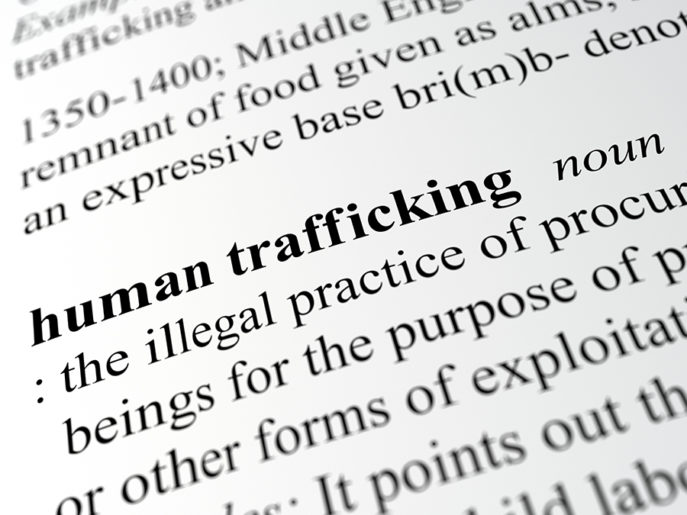With the recent arrest of New England Patriots owner Robert Kraft in Florida as part of a broader law enforcement sting operation, and challenging issues involving human trafficking and sexual exploitation were thrust back into the public spotlight.
Human trafficking is a serious and widespread problem that impacts thousands of people across the United States and the world. Women of color, transgender people, children and other marginalized populations are particularly vulnerable to exploitation and trafficking.
Although the recent news has prompted an important dialogue about trafficking, it has also revealed widespread public misconceptions about the issue. Here are three things everyone should know about human trafficking:
Human trafficking is a form of sexual violence.
The behaviors that comprise sexual violence exist on a spectrum, from sexual harassment to violent assault. When individuals who are underage and/or unable to choose are forced into sex work without their consent, that is inarguably a form of sexual violence. Like all forms of sexual violence, the victims of trafficking deserve support and are never to blame. Serious cases like this one aren’t fodder for jokes or trash talk between rival sports fans. Reports of sex trafficking increase each year in the United States, and rates of trafficking frequently rise in conjunction with major sporting events which draw large crowds and increase demand for sex.
All of us have a role to play in helping to end trafficking, which can occur right in front of us in plain sight — on streets, in hotels and motels, at truck stops and airports, in restaurants and massage parlors, and in our own neighborhoods.
Sexual exploitation should NEVER be for sale.
There are important distinctions when we talk about human trafficking. Trafficking victims are exploited and forced into actions without their consent. Human traffickers use force, fraud, or coercion to manipulate adult victims into engaging in commercial sex acts in exchange for money, debt repayment, or something of value. According to the U.S. Department of Human Services, individuals, circumstances, and situations vulnerable to traffickers include homeless individuals, runaway teens, displaced people, refugees, foreign workers on visas, migrant workers, international and domestic job seekers, foreign nationals looking for better life opportunities in the United States, children and adolescents, people with drug addictions.
There is a power dynamic that must be acknowledged whereby consent and choice are taken from trafficked individuals. Conflating sexual exploitation with prostitution is disturbingly common in public discourse, a trend that only serves to reinforce the stigma sex workers face while simultaneously minimizing the harm to trafficking victims by diminishing the impact of their exploitation.
Ending trafficking requires systemic change and holding the powerful accountable.
While individual cases can serve as important moments to focus the public’s attention on this important issue, no one law enforcement action can end systemic problems. Instead, we must keep the focus on the broader cultural factors that enable sex trafficking. Trafficking is driven by supply and demand: the demand for commercial sex regardless of the conditions, treatment, and well-being of those involved leads traffickers to commit serious crimes and violate the consent and dignity of their victims, all in an effort to provide a sufficient supply to meet the demand. Both the traffickers and those driving demand and supporting the industry must be held accountable.
Leaders of organizations like sports teams, Fortune 500 companies, or political offices have a particularly important role to play. Organizations can and should hold every member of their staff accountable for actions that violate organizational values and their code of conduct. Leaders also set an example for members of their organization and the general public to follow that by not participating in the commercial sex industry, they can reduce the demand for sex trafficking.
For more information about human trafficking, please visit NSVRC’s toolkit on Sexual Assault Response.
The Human Trafficking National Hotline [is 1-888-373-7888.

